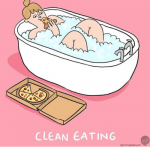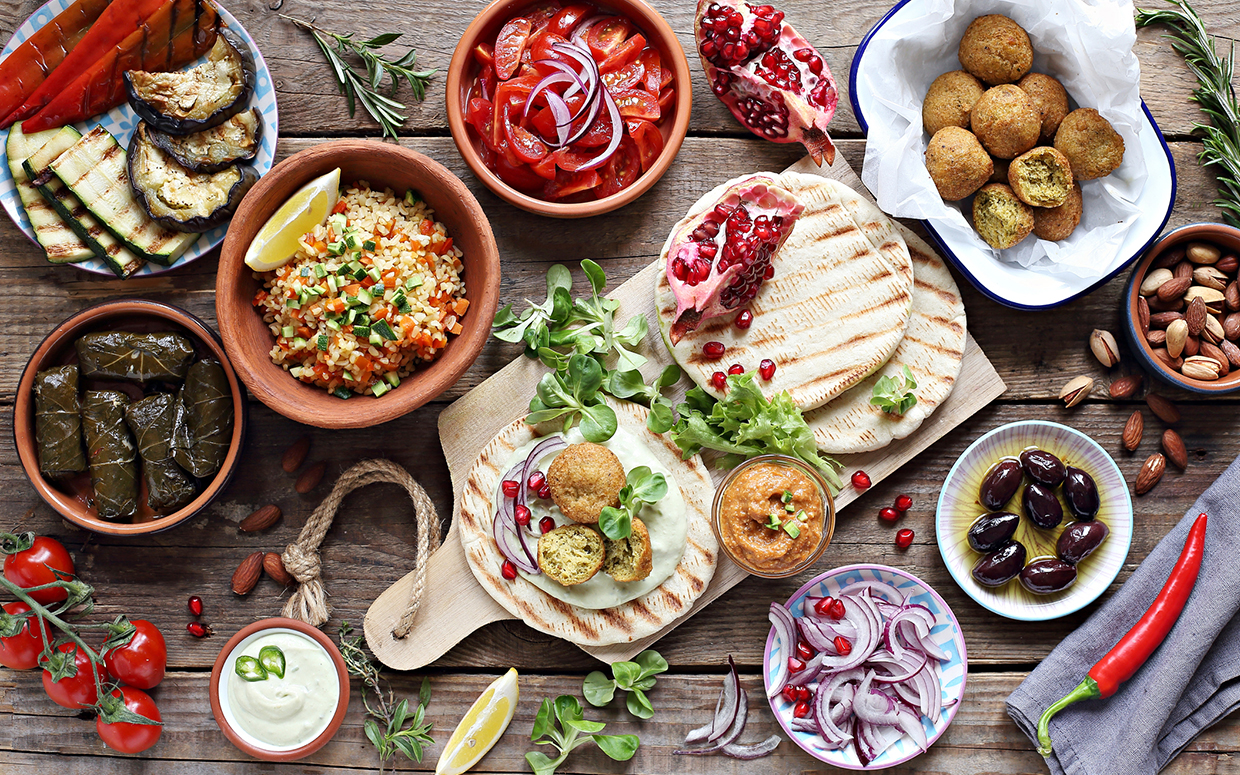We have all been there. The situation is: You have quite recently taken dinner or lunch, yet you actually might want to have some sweet or end up carelessly gorging on a stack of chips infront of your TV. And afterwards when you simply finish, the sensation of dissatisfaction kicks in. You feel guilty and powerless.
We are in December, ultimately so, a happy season, when we seize the idea of a solicitation to a gathering. We even plan on how we will enjoy, wind up feeling remorseful and pin it all to the weight reduction objective we are eventually going to set in January.
Is the exit plan another eating regimen? Maybe another diet? Today I will examine the idea of Intuitive Eating and whether this is the new “diet that really bodes well”.
So at this point, you have already realized that taking up diets spins around limitation or restriction and evidentially leads to gaining all the fat once lost.
Food Restriction can likewise prompt pre-occupation with food, blame about eating, food issue, unfortunate relationship with food, sadness and even pressure!
Then comes Intuitive Eating. I know, I know, you possibly may have never heard of the concept. Is it just another Diet Culture movement? Does it have any proven benefits?
So basically, Intuitive eating is a philosophy of eating that makes you the expert of your body and its hunger signals.
This was a concept that was first founded in 1973 by a weight management program and was elevated only in 1995.
The idea revolves around ten concepts.
1. Reject the diet mentality
The diet mentality is the idea that there’s a diet out there that will work for you. Intuitive eating is the anti-diet. Get rid of books and magazines that tout diets and easy or quick weight loss. Unfollow social media accounts that propel the dieting myth and diet behaviors (especially those that make you feel bad about yourself) and instead follow accounts that share positive food and health messaging.
2. Honor your hunger
Hunger is not your enemy.
Respond to your early signs of hunger by feeding your body. If you let yourself get excessively hungry, then you are likely to overeat.
3. Make peace with food
Call a truce in the war with food.
Get rid of ideas about what you should or shouldn’t eat.
4. Challenge the food police
Food is not good or bad and you are not good or bad for what you eat or don’t eat.
Challenge thoughts that tell you otherwise.
5. Respect your fullness
Just as your body tells you when it’s hungry, it also tells you when it’s full.
Listen for the signals of comfortable fullness, when you feel you have had enough. As you’re eating, check-in with yourself to see how the food tastes and how hungry or full you are feeling.
6.Discover the satisfaction factor
Make your eating experience enjoyable. Have a meal that tastes good to you. Sit down to eat it.
When you make eating a pleasurable experience, you may find it takes less food to satisfy you.
7. Honor your feelings without using food
Emotional eating is a strategy for coping with feelings.
Find ways that are unrelated to food to deal with your feelings, such as taking a walk, meditating, journaling, or calling a friend.
Become aware of the times when a feeling that you might call hunger is really based on emotion.
8. Respect your body
Rather than criticizing your body for how it looks and what you perceive is wrong with it, recognize it as capable and beautiful just as it is.
9. Exercise — feel the difference
Find ways to move your body that you enjoy. Shift the focus from losing weight to feeling energized, strong, and alive.
10. Honor your health — gentle nutrition
The food you eat should taste good and make you feel good.
Remember that it’s your overall food patterns that shape your health. One meal or snack isn’t going to make or break your health.
Research on this idea has been continuous and has to a great extent zeroed in on ladies. Up until this point, intuitive eating has been connected to more advantageous mental perspectives, weight support, and not really weight reduction, a better relationship with food, lower paces of enthusiastic and cluttered eating. Intuitive eating isn’t suggested for anybody with a food problem.
Consider the big picture, we are totally brought into the world natural eaters. Babies cry, they are taken care of and afterward they quit eating until they are ravenous once more. From week to week, a child adjusts their food consumption, and on different days they may even wind up eating nothing. As we become more seasoned, and we make our own guidelines in our homes about food, we lose our internal natural eater. Predominantly in light of the food sources, we have in our nations. We additionally rapidly figure out how to finish everything on our plate and gorge as an approach to reward ourselves. We categorize food as either good or bad causing us to feel good about ourselves when we eat certain foods and guilty when we eat others.
Intuitive eating is therefore something that you can use to maintain health only if, your food choices are less processed, you choose real food more often than not and you are in tune with your body for hunger and satiety levels. So there you have it, this may be a concept you could choose to incorporate instead of viciously choosing a new diet or challenge come January to consciously start better nutrition behavior! I know you have questions. Drop them below!









